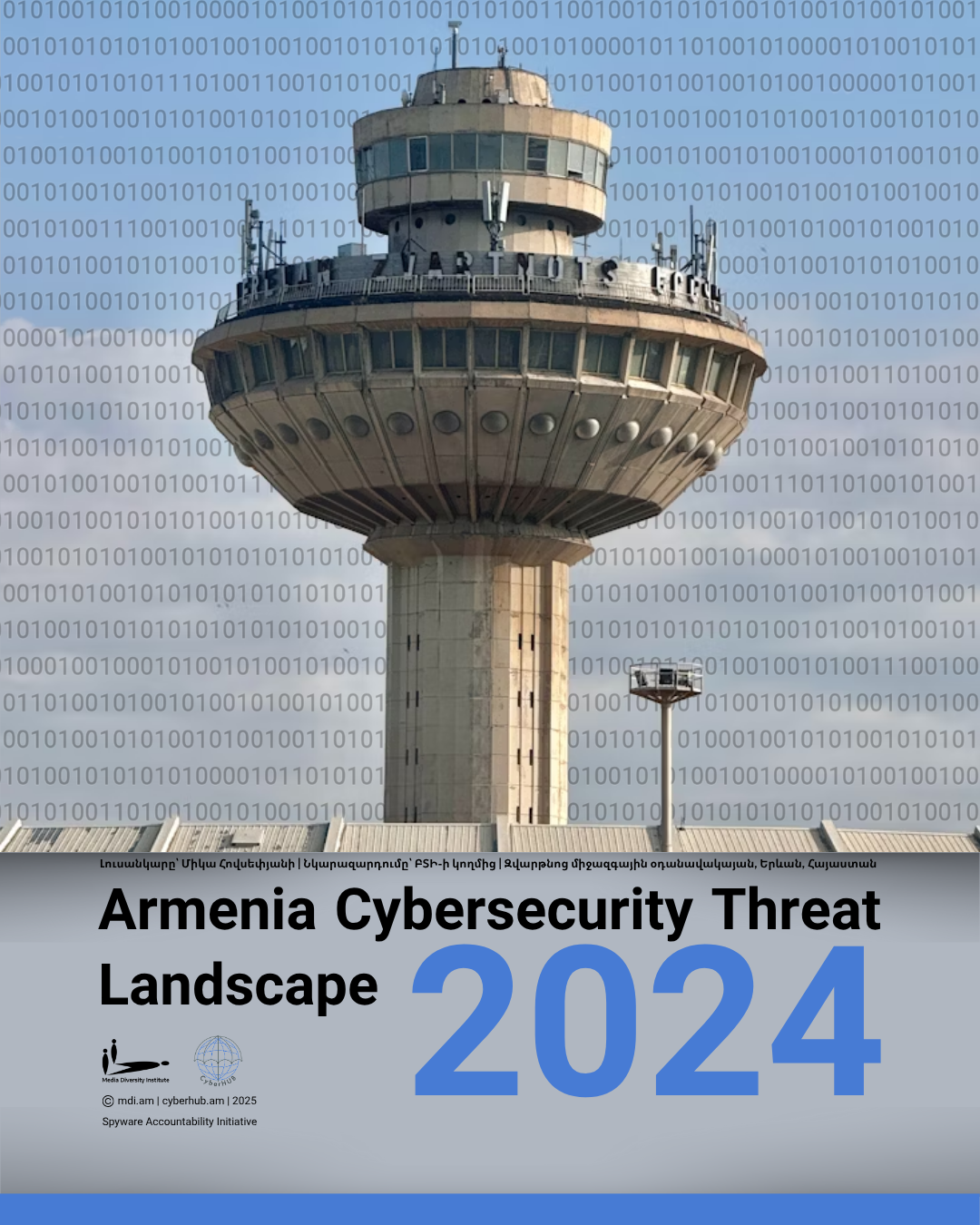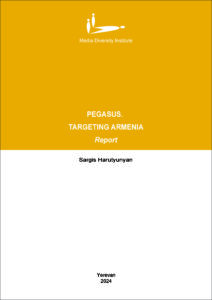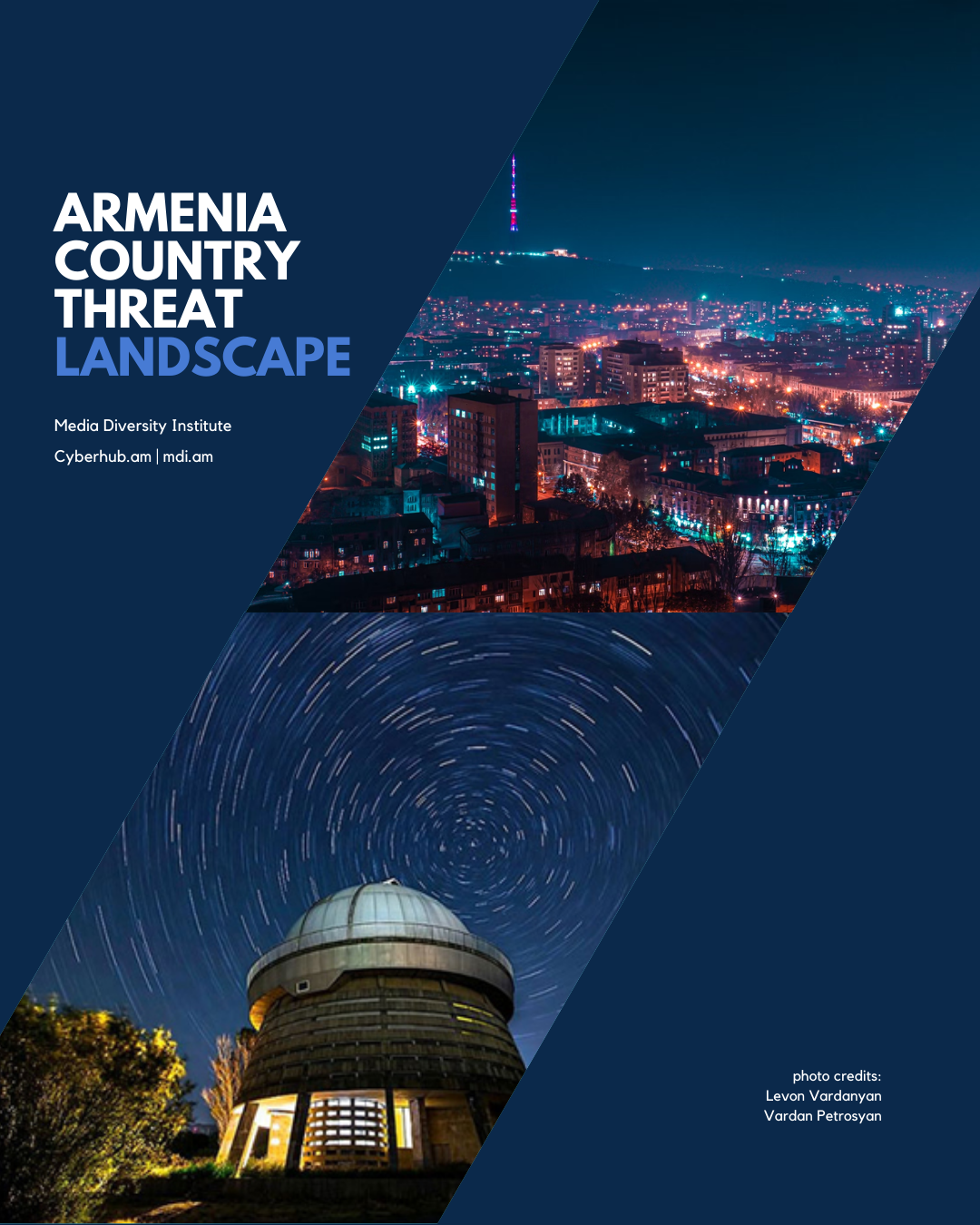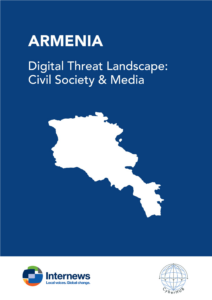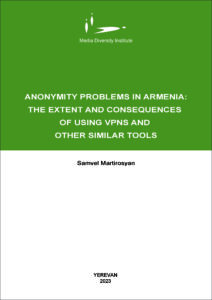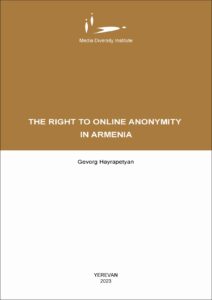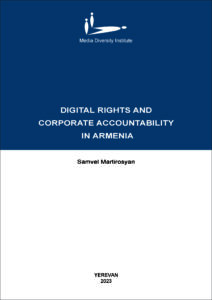Media Diversity Institute has published a range of books and handbooks for training journalists, developing media relations skills of non-profits, as well as helping journalism lecturers. You can download the electronic copies of the books below. The Armenian language publications are presented in ANSI encoding.
Armenia Country Threat Landscape Report 2024
Armenia’s digital security environment faced significant challenges in 2024, largely driven by geopolitical tensions and sophisticated cyber threats. The country’s strategic pivot toward the European Union, United States and reduced dependence on Russia appears to have intensified these cybersecurity risks.
The threat landscape encompasses multiple sectors, with targeted attacks against government institutions, media organizations, and civil society groups. State-sponsored cyber espionage has become particularly concerning, with advanced spyware deployments observed during the Armenia-Azerbaijan conflict. These persistent attacks on Armenia’s digital infrastructure have raised serious security concerns.
Report is here
Why Are There No Armenians in Nagorno-Karabakh? Fact Finding Report
This report examines the situation for ethnic Armenians living in Nagorno-Karabakh for the period starting with the Second Nagorno-Karabakh War in 2020 and through the Azerbaijani military offensive against Nagorno-Karabakh in September 2023 and its aftermath. Through an international fact-finding effort that included hundreds of witness interviews and open-source data, the analysis aims to answer why there are no ethnic Armenians living in Nagorno-Karabakh as of May 2024. It documents how people in Nagorno-Karabakh were intentionally subjected to regular attacks, intimidation, deprivation of basic rights and adequate living conditions, and forced displacement. The evidence demonstrates that the Azerbaijani state acted upon a comprehensive, methodically implemented strategy to empty Nagorno-Karabakh of its ethnic Armenian population and historical and cultural presence.
This fact-finding report was jointly prepared by Freedom House, International Partnership for Human Rights, Democracy Development Foundation, Helsinki Citizens’ Assembly – Vanadzor, Protection of Rights without Borders NGO, Law Development and Protections Foundation, and Truth Hounds. Media Diversity Institute conducted the open-source investigation and verification. Talin Hitik provided substantial support editing the summary and the larger report. Anoush Baghdassarian made a significant contribution to editing several sections of the larger report. The methodology and questionnaires were prepared by Democracy Development Foundation, International Partnership for Human Rights, and Truth Hounds. The fact-finding mission was made possible with the support of Open Society Foundations and Freedom House. The fact-finding mission was coordinated by the Democracy Development Foundation.
The report is available here.
PEGASUS. Targeting Armenia
From mid-2020 to late 2023, cybersecurity specialists in Armenia identified that several hundred individuals, including key government figures like President Vahagn Khachaturyan, Prime Minister Nikol Pashinyan, and National Assembly Speaker Alen Simonyan, were targeted by Pegasus spyware. The aim of this document is to provide a general overview of the deployment of the Pegasus mercenary spyware in Armenia to the broader populace and policymakers.
Download Report
Armenia Country Threat Landscape Report 2023
Armenia is notable in the context of digital security for several reasons. It has experienced state-sponsored cyberattacks, including the use of NSO Group’s Pegasus spyware during the Armenia-Azerbaijan conflict in Nagorno-Karabakh. The geopolitical landscape is further complicated by the involvement of global cyber powers such as Russia, Iran, and Israel, with the latter providing services for Azerbaijan. These nations have been known to actively operate within Armenia, exacerbating the already tense cyber environment.
This report outlines the threats faced by civil society and journalists in Armenia, offering valuable insights for cybersecurity experts. Major technology companies like Google, Microsoft, Meta, and Apple have all issued reports highlighting various cyber-attacks targeting Armenia. These reports underscore the urgent need for enhanced cybersecurity measures to protect sensitive data and infrastructure.
Report is here
Armenia Digital Threat Landscape: Civil Society & Media
This report was prepared by Internews’ Internet Freedom & Resilience team under a stream of work that strengthens civil society organizations, journalists, and other human rights defenders’ ability to detect, analyze, and build resilience to digital attacks through localized expertise in threat analysis and incident response.
It is intended to provide an overview of the digital threats faced by civil society and media organizations in Armenia and provide guidance for digital safety experts supporting this community.
This report was written in close collaboration with CyberHub-AM, a Computer Emergency Response Team (CERT) for Armenian civil society, including NGOs, Human Rights Defenders, Activists, journalists, and independent media. They serve as a contact point and help desk for the above-mentioned groups in Armenia and collect, analyze, and anonymously and responsibly share incident data and indicators with the global threat intelligence community where appropriate.
Download Report
Anonymity Problems in Armenia: The Extent And Consequences of Using VPNs And Other Similar Tools
In the Republic of Armenia, there is no continuous and extensive demand for anonymity tools to bypass blocking such as VPN and TOR. However, the occasional escalation of domestic political struggle and the short-term but periodic blockings of the Internet contribute to a growing interest in these tools.
Despite anonymity, there is no ban on such tools in the country, which are not even regulated by law. At the same time, there have been cases when citizens have been prosecuted for using VPNs.
Download PDF version.
The Right to Online Anonymity in Armenia
Online anonymity is a guarantee of freedom of expression in the digital age. Without anonymity, people are less likely to express themselves freely, for fear of reprisal. This can have a chilling effect on free speech, especially in countries where freedom of expression is already restricted.
Media Diversity Institute has developed a policy brief entitled — “The Right to Online Anonymity in Armenia,” which examines the legal regulations of online anonymity in Armenia. The report finds that the current regulations are inadequate and do not adequately protect the right to online anonymity. The report makes a number of recommendations for improving the legal framework for online anonymity in Armenia.
The report is intended for a wide range of audiences, including the media, human rights defenders, industry experts, state administration bodies, and legislators. The report is available in PDF format at this link.
Digital Rights And Corporate Accountability in Armenia
This research uses Ranking Digital Rights (RDR) Index Methodology to assess how Armenia’s three telecom operators (Viva-MTS, Team Telecom, and Ucom) collect, store, process, and share users’ data with third parties and government agencies.
The research finds that all three companies provide similar documents to inform their customers, yet they do not provide enough details about how they use and share users’ data with third parties or government agencies.
The research is avialble for download in PDF format.
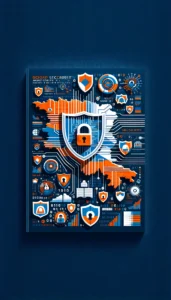
Digital security incidents against the Armenian Civil Society in 2019 – 2020
This report examines digital security threats against Armenian civil society in 2019-2020, including government, opposition, and international cyber attacks, highlighting phishing, malware, and DDoS. It notes the growing attack sophistication, exploiting weak passwords and inadequate security training. It recommends improving digital security, risk management, and preparation against cyber threats.
Download Report
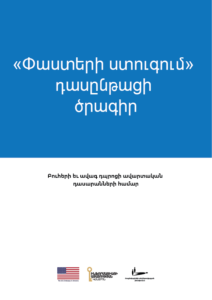
“Fact-Checking Curriculum”
This curriculum was developed jointly by the experts of the Media Diversity Institute and the Freedom of Information Center as part of their “Fight Against the Disinformation Virus” project launched in July 2020. This handbook provides practical fact-checking advice for journalists and those interested in improving their reporting quality and voiding mistakes.
The handook is available for download in PDF format.
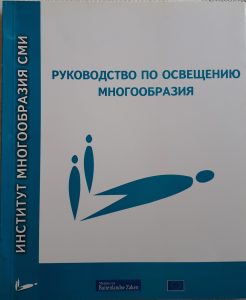
Reporting Diversity Manual
“Reporting Diversity Manual” by David Tuller for the Media Diversity Institute, focuses on promoting ethical and comprehensive reporting on diversity issues, particularly in the context of ethnic, religious, gender, disability, and other forms of diversity. It provides guidelines, case studies, and practical tips for journalists to avoid perpetuating stereotypes and biases while covering stories that involve diverse groups. The manual also discusses the importance of including diverse perspectives and voices in reporting to foster understanding and tolerance among different communities. It highlights the role of the media in challenging prejudices and supporting democratic values by providing fair, accurate, and nuanced coverage of diversity issues.
The manual is available in Armenian, Russian and English lanuages.
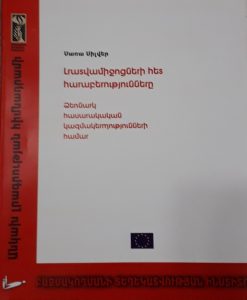
A Media Relations Handbook for Non-Governmental Organizations
“A Media Relations Handbook for Non-Governmental Organizations” is a comprehensive guide aimed at helping NGOs effectively communicate and engage with the media. It covers a wide range of topics including planning and executing media strategies, understanding the media landscape, and utilizing various communication tools such as press releases, press conferences, and social media. The handbook is designed to enhance NGOs’ capabilities in fostering positive media relations, thereby increasing their visibility, influence, and ability to advocate for their causes more effectively. It offers practical advice, examples, and best practices to empower NGOs to navigate media interactions confidently and with greater impact.
The manual is available for download in Armenian, Russian and English languages.
There is also an addendum to the mainual — “Media Relations: Tips from leading Armenian experts”, also available for download in Armenian and English languages.
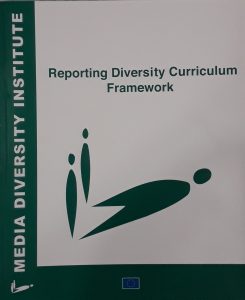
Reporting Diversity Manual
Media Diversity Institute has developed and published a curriculum to teaching journalists and journalism students to cover diversity issues. The curriculum is only available in English and only as a printed version. To get your copy of the book, please contactu us.
